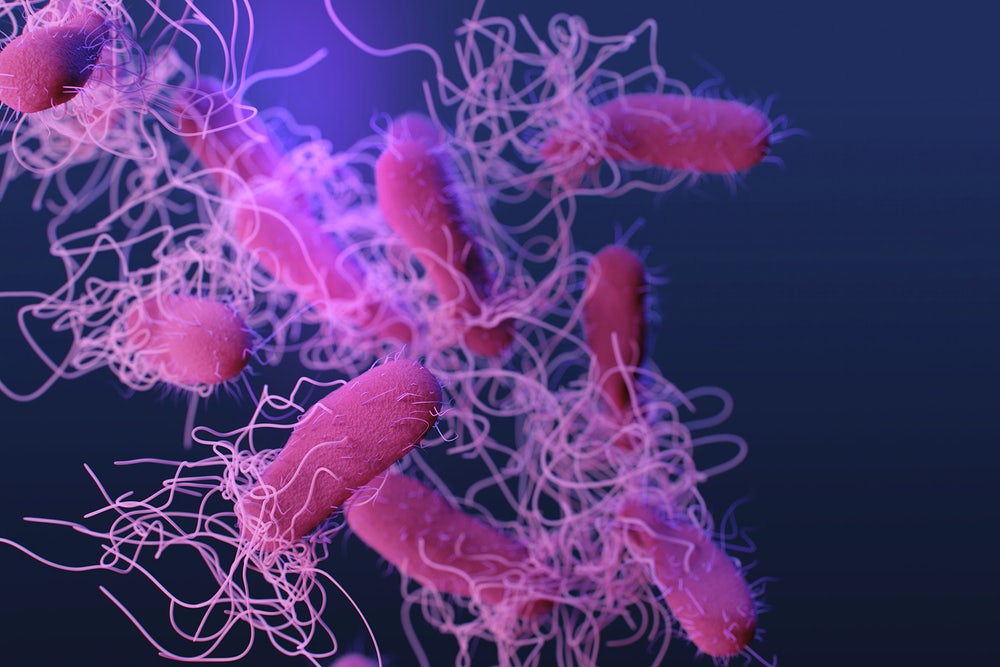Just because you mopped your tile floor doesn’t mean it’s clean. Dirt and microbes may be hiding in the grout regardless of how often you clean your tile floor. Tiles tend to trap the dirt and even the odors from these sources.
Consider Professional Surface Restoration to deep clean your tile and grout. We specialize in cleaning hard surfaces, effectively getting rid of hidden dirt and trapped odors, and bringing your floor back to the original state you remember.
Dangers of the Five-Second Rule
It’s about time to retire the belief that you can still safely eat anything off the floor if it hasn’t been down there for five seconds. Harmful bacteria do not wait five seconds before infecting food.
Your kitchen, dining areas, or any room with tiled floors are at risk of harboring bacteria that may harm your entire family.
RELATED ARTICLE: 3 Reasons to Deep Clean Your Property Before Winter Arrives
Keep your tile and grout free of bacteria with Professional Surface Restoration. If you could prevent children from eating dropped food, you would. Children will do anything, so it would be best to ensure your floors are as clean as possible.
Common Germs and Bacteria in Dirty Tile and Grout
Germs pose several health risks for your eyes, lungs, and stomach. Here are some dangerous bacteria that commonly thrive in dirty grout:
- Streptococcus: Strep bacteria trapped in tile and grout can be airborne and cause a sore throat, specifically called strep throat. This condition includes fever and pain when swallowing. It is more common among children than adults.
- Staphylococcus: This contagious germ spreads through skin-to-skin contact, resulting in several skin infections. Staph bacteria may cause blisters, boils, and cellulitis, a condition that causes redness, swelling, and pain.
- Escherichia Coli: Commonly known as E-coli, this bacteria commonly affects children. Adults then contract E-coli through their children. E-coli infection leads to painful illnesses, such as abdominal pain, extreme diarrhea, and vomiting.
- Salmonella: This bacteria spread through contaminated food and water. Salmonella also thrives in bathroom tiles. Children and adults with weak immune systems have a high risk of developing salmonella-associated adverse symptoms, including abdominal pain, chills, diarrhea, fever, and vomiting.
- Campylobacter: Like other common bacteria in this list, campylobacter affects children. Infants crawling on the floor also run risks of contracting this bacteria. Affected people may experience bloating, cramping, diarrhea, and fever.
RELATED ARTICLE: How to Clean and Seal Concrete Surfaces
Dirty Tile Floors, Dirty Air
Bacteria hiding in dirty tile and grout contribute to poor indoor air quality. Poor air quality may cause the following health effects:
- Confusion
- Dizziness
- Fatigue
- Headaches
- Irritation (eyes, nose, and throat)
- Nausea
Meticulous and Professional Cleaning Solution
Professional deep cleaning services can effectively restore any home with tiled floors to ensure overall health and safety for the entire family. However, you may still have to deep clean your grout and tiles occasionally to maintain their condition. Here are some tips on how to clean dirty tile and grout properly:
- Wipe down visible dust with a damp cloth.
- Use a baking soda, vinegar, and water solution to clean tiles.
- Use a toothbrush to clean between tiles.
- Allow the solution to sit before scrubbing.
- Rinse the tiles with water.
If you perform these tips and still notice stains on your grout or tiles, consider professional cleaning services to save you the trouble. Get in touch with our experts at Professional Surface Restoration to discuss your options today!


